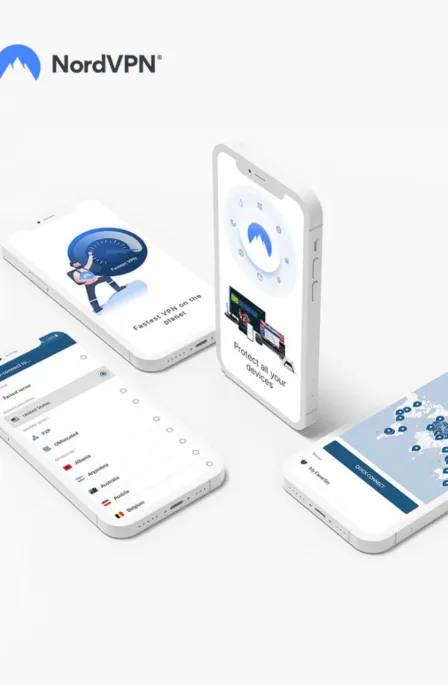Smartphones have become so sophisticated these days that they are considered the portal to our online identity and thus should be treated with extra care. An enormous amount of information is stored on our Android mobile phones these days, resulting in a much larger threat to Android security.
Unknowingly, we exchange much of our personal information to many forums and browsers like Google, but we pay no heed to the Android privacy concerns at stake.
Android security undoubtedly has many vulnerabilities and flaws, and the nosy pocket sniffers are always ready to seek opportunities to get hold of your valuable assets. Android users should always be on alert to keep their privacy and personal information out of reach of miscreants.
For Android security concerns, many handy tools are made available to Android users by which they can preserve their Android privacy.
Do Not Save All of Your Passwords
Have you ever realized what would happen if any dubious person gets his hand on your Android device? Many online services and sites offer you to save your password there and then so that, when logging in, you don’t have to type the password again in the future. Most users follow the flow and save their passwords to such websites.
But have you realized that if your Android device gets into the hands of a hacker, he can extract all your essential passwords saved on your device? This can lead to a massive loss of personal and private information, specifically regarding online transactions.
Use Android In-built Security
Even the least bit of security can deviate a hacker from hacking your Android device, as thieves generally attack those houses with open doors and windows. So how will you put up the minimum level of Android security? Android has built-in security features that offer you the minimum level of security through the basic PIN, password, or swipe gestures.
A screen lock and encryption can be enabled to boost your Android security if you are running on Jelly Bean. You should set up tough passwords or pattern locks to give the hackers difficulty making out your password.
Enabling a lock screen PIN is too easy; just go to Settings -> Security -> Screen Lock. From here, you can pick your choice of password lock type that you will have to enter each time you access your phone.
Lock Your Apps
Locking your apps, particularly those that hold your private information is crucial. This works as a double coat for your Android security and prevents anyone from penetrating into your lost device, even if they have managed to evade your locked Android.
A free app like App Lock can be used for this purpose which locks not all the apps on your device but only the important ones that have access to your sensitive information, like email apps or file managers.
Avoid using a combination of a pin or pattern lock that is easy to trace from the streaks of your Android screen.
Understanding App Permissions
A list of requested permissions shows you the permissions required by an app before you begin to install it from Google Play. Many apps require permissions that are not even necessary. Thus, you should always ensure that you go through the list of permissions that an app asks for and correspond to what the app does.
This is an essential step because not all apps you install via Play Store are safe for your Android privacy. While choosing an app to install, go through the comments and ratings of the related app. This will help you gain precise know-how of the app, what it does, and how it works.
Securing Your Network
While on a mission to protect your Android privacy, you should consider securing your network foremost. Avoid using public Wi-Fi when doing online banking because this can lead your data directly into the hands of a hacker.
You can use a VPN – Virtual Private Network – that ensures anonymity by routing traffic through different relay servers. This feature enhances your Android security; you can now securely browse the web. But some VPNs do keep a log history, so it is always best to first have a good review of the VPN that you opt for.
Use Mobile Security App
Installing a Mobile Security App can enhance your Android security as it can deal with all your security issues. Better find a mobile security app before the Android malware gets you. Lookout Security & Antivirus and Avast Mobile Security are some examples of security apps for Android. They can help you augment your Android security.
Android malware is getting out of hand these days. That’s why you should never let your guard down.
A Multiple-User Account Can Enhance Your Android Security
If you have to share your Android device – a tablet, Smartphone, or any other device – with your siblings or other family members, creating multiple user accounts will help you protect your privacy. This option is available in Jelly Bean for a tablet.
You can even create a general account for anyone who wants to use the same device that you are using. The option is in the Settings -> Users section.
Prepare A Backup Of Your Data
Nowadays, losing Smartphones has become a common situation in everyday life. A backup of your beloved data is essential because misfortune never comes alone. Even nasty experiences like a stolen or hacked Android device can be devastating. Without a backup, the last thing you can do to secure your Android privacy is to perform a remote wipe – as discussed in #10.
If you don’t have a backup, you will not just lose your data, but your personal information will also become prone to hacking. However, if you have a backup, you can still restore your Android device to it as before.
For your Android security, you can back up your beloved data to the Cloud, and your desktop or even an external storage device can be used for this purpose.
Track Your Lost Device
Even with a backup, if you are desperate to have your lost Android device back, you will need one of the device-tracking apps for Android to fulfill this purpose. But hold on a second! The Smartphone industry has already looked into this matter of Android security and hence introduced the feature to track the lost device.
To track the lost Android device, you have to enable GPS on your phone so that it can be tracked. Some Android device-tracking apps can even turn on the GPS on your device remotely.
Enable Remote Wipe
Finally, you are all geared up and ready to go. But still, your Android privacy is at threat, so for this purpose, you shall need one last feature – remotely wiping your device. This is crucial for you as you are never certain whether your Android device will be lost forever or if it will come back to you. However, performing a remote wipe can prevent hackers from hacking your precious data.
We recommend you use the Premium version of Lookout Security & Antivirus to enhance your Android security. This version adds the following features to the standard version. The features of the Premium version include remote lock and wipe, privacy advisor, safe browsing, and advanced backup. You can still locate your lost phone or sound an alarm remotely with the app’s free version.
Conclusion
There is no denying that Android security and privacy concerns are rapidly growing, but to keep up with the pace, there are plenty of great protection services to choose from. The above-listed apps and settings can quite easily protect your Android privacy and boost your Android security.
But the most effective change you can devise is to modify your phone habits. Keep location usage to a minimum, either disable or uninstall apps you no longer use, keep your eyes on the app permissions during updates, and change your passwords regularly, and you should be safe and sound.
Share this article
About the Author
Rebecca James is an IT consultant with forward thinking approach toward developing IT infrastructures of SMEs. She writes to engage with individuals and raise awareness of digital security, privacy, and better IT infrastructure.
More from Rebecca JamesRelated Posts

13 Mobile Security Threats And How To Prevent Them
With the advent of smartphones, mobile devices have slowly become an integral part of our lives. Mob...

Top Fake Security Alerts Cost Mac User Big Bucks & Identity Theft
Macs are secure compared to Windows devices. But it is a great misconception that Mac users don̵...

How to Stop Someone From Spying on My Cell Phone
Spyware is a cell phone that has become a common issue these days. But thinking about it too much or...

OpenSSL Vulnerability: Security Patch released But What’s The Whole Story?
A security hole has been found in OpenSSL, which has now been addressed with a fix. The discovered v...

3 Ways Data Encryption Protects Your Devices
When the COVID-19 pandemic began, cases of cybercrime exploded, and it’s only getting worse. W...

How Can Your USB Device Pose Security Risks to You
A Universal Serial Bus – USB device is a helpful external data storage device. It includes a f...





